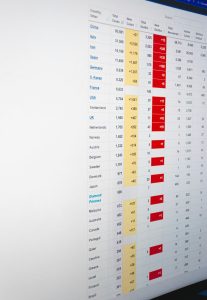What Keeps You Motivated at Work? Practical Tips for Success
3 min read
What motivates individuals to perform at their best in the workplace? Understanding your motivations is key to achieving success and job satisfaction. Whether motivation comes from within or from external rewards, knowing what drives you can help you thrive. This article explores the factors that motivate people to excel and how organizations and individuals can foster better performance through motivation.
What Is Extrinsic Motivation?
Extrinsic motivation is driven by external factors like financial rewards, recognition, or job security. It relies on incentives provided by outside forces, such as managers or company policies.
Key Factors:
- Financial Incentives: Salary, bonuses, and commissions are strong motivators. Knowing that hard work leads to tangible benefits keeps many employees engaged.
- Recognition and Praise: Public acknowledgment, awards, or promotions motivate employees by showing that their efforts are valued.
- Job Security: Stability in employment encourages employees to perform well, especially when they know their work directly impacts their long-term career prospects.
Why Motivation Matters for Success

Motivation is the force that drives productivity and fulfillment. When you’re motivated, you perform better and feel more engaged in your work. Knowing what motivates you helps you stay focused, energized, and resilient, even when challenges arise.
How Company Culture Impacts Motivation
Company culture plays a significant role in driving motivation. A positive, supportive environment can enhance both intrinsic and extrinsic motivation, helping employees feel connected to the organization’s goals.
Key Influences of Company Culture:
- Values and Mission: Employees are more motivated when their personal values align with the company’s mission. Clear and inspiring values give them a sense of purpose in their work.
- Leadership: Supportive, engaging leaders inspire their teams by offering guidance and recognition. Good leadership fosters trust and collaboration, which boosts motivation.
- Work Environment: A positive, collaborative atmosphere motivates employees to do their best. When employees feel supported by their team and have open communication, they’re more likely to stay engaged and productive.
What Role Do Individual Differences Play in Motivation?
Not everyone is motivated by the same factors. Personality traits and personal goals significantly impact what drives individuals to succeed.
Personality Traits That Influence Motivation:
- Conscientiousness: Those who are organized, disciplined, and goal-oriented are often highly motivated to perform well and meet expectations.
- Extraversion: Extraverted individuals seek social interaction and recognition, making them more motivated by public acknowledgment and team dynamics.
- Neuroticism: People who tend to experience negative emotions may find it harder to stay motivated. However, addressing their concerns and providing a secure environment can boost their performance.
Each person’s values and aspirations influence their motivation. Some may be driven by personal growth, while others focus on financial rewards or career advancement.
How Technology and Remote Work Affect Motivation
With the rise of remote work and technology, motivation can be influenced in new ways. While remote work offers flexibility, it also presents challenges like isolation or distractions.
Technology’s Impact on Motivation:
- Flexibility and Convenience: Remote work provides flexibility, which can enhance motivation for employees who value work-life balance and autonomy.
- Isolation and Distractions: Working remotely can lead to feelings of isolation or a lack of focus due to home-based distractions, lowering motivation levels.
Strategies for Staying Motivated in Remote Work:
- Virtual Team Building: Fostering a sense of connection through virtual team-building activities helps maintain motivation and collaboration.
- Clear Communication: Consistent and transparent communication keeps employees aligned with goals, preventing feelings of disconnect and keeping motivation high.
Conclusion: How to Balance Motivation for Success
Understanding what motivates you is key to doing your best work. Both intrinsic factors, like personal growth and purpose, and extrinsic factors, like recognition and rewards, play a role in driving performance. For the best results, individuals and organizations should combine both internal and external motivators. Creating a positive work environment, offering growth opportunities, and recognizing achievements are essential for enhancing motivation and performance.
What motivates you to perform at your best? Share your thoughts in the comments below! Don’t forget to subscribe for more tips on staying motivated and excelling in your career.






